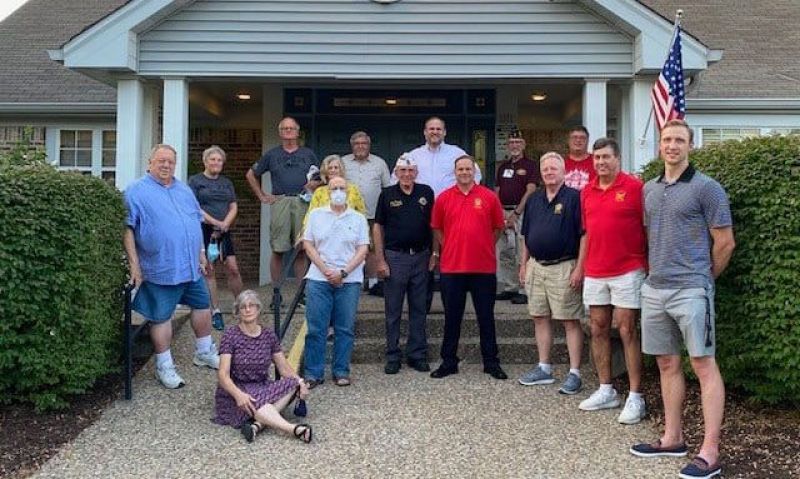
Closed years earlier, the post has been chartered again and hit 234 percent membership this year.
For 30 years, Edward F. Ucinski Sr. was a member of American Legion Post 302 in St. Louis. The U.S. Army veteran and Bronze star recipient fought in the Ardennes Counter Offensive in Bastogne, where he was captured by German forces and was a prisoner of war at Stalag VII-A in Moosberg before being liberated months later on Easter Sunday in 1945 by Gen. George Patton.
Ucinski Sr. passed away in 1998, and afterward so did the remaining members of Post 302, forcing it to close several years ago. But now the post has been reborn and is thriving, thanks to a familiar name: Edward Ucinski III, the grandson of Edward Sr. and commander of Post 302.
Missouri’s immediate past 10th District commander, Edward III formed up Post 302 again in 2019 with a handful of other veterans. Since then, the post has grown its membership exponentially, hitting the 234 percent mark this year in growing the post to 70 veterans.
“We’ve done a number of things (to grow membership),” said the 48-year-old Edward III, who has been named both a Gold and Silver Brigade recruiter within The American Legion. “The biggest thing … is I talked to veterans all over, especially ones that are younger, and (asked them) ‘what do you want in a veterans group?’ You’d hear the same stories: ‘We actually want to go out and do things that young veterans want to do.’”
But what also came up in discussions among those veterans was a desire for camaraderie. Edward III wanted to market the post to “the younger crowd” and started using a list of department headquarters post members. He began finding that there were older veterans who wanted the same thing the younger veterans wanted, and didn’t have the need for a social club setting.
Without the need for a brick-and-mortar home, the post began meeting at a local restaurant before one of the members offered up his subdivision’s clubhouse as a free meeting location.
Post 302, now named for Edward III’s grandfather, has a membership ranging from the Vietnam War to post-9/11 veterans, with all ages in between. Edward III said the reason is creating a feeling of inclusion.
“I want … to invite everyone who wants to be a part (of the post),” he said. “Be positive and friendly toward people, and get them to come in.”
Edward III, who previously was a member of Post 300 in Affton and Post 400 in Fenton before transferring to 302, has written up several strategies Post 302 used for growing its membership, including:
· Finding common ground or interests to talk about, which starts with being veterans.
· Inform prospective members that when joining The American Legion, nothing is mandatory, and they will not be deployed.
· Tell people what The American Legion is and what it’s doing. And remind them that members of the organization are volunteers and believe in The American Legion and its mission.
· Use the paid-up Post 1000 members list, and use a team approach to recruiting.
· Be energetic when talking about The American Legion.
· While attempting to get new members, don’t forget the current ones. Make those members feel appreciated and always welcome.
· If you're are a post officer and see someone in your post who you do not recognize, immediately go out of your way and approach them to introduce yourself. There is almost nothing worse than ignoring potential members or ignoring new members.
Since its chartering, Post 302 has been proclaimed a POW-MIA Memorial Post by the St. Louis County Council, has sponsored one of the first all-female Boy Scouts of America troops, conducted food drives and participated in The American Legion School Award Medallion program.
Edward III said the original Post 302 chose not to look to the future when it came to membership – something he is trying to change this time.
“You have to welcome in the next generation. Otherwise, you’re going to have to close your doors one day,” he said. “That’s something I wanted to market. I hope that this time around we can plan for the future, and maybe … when I’m gone this program will continue in some form or another. That’s what I’m hoping for.”

